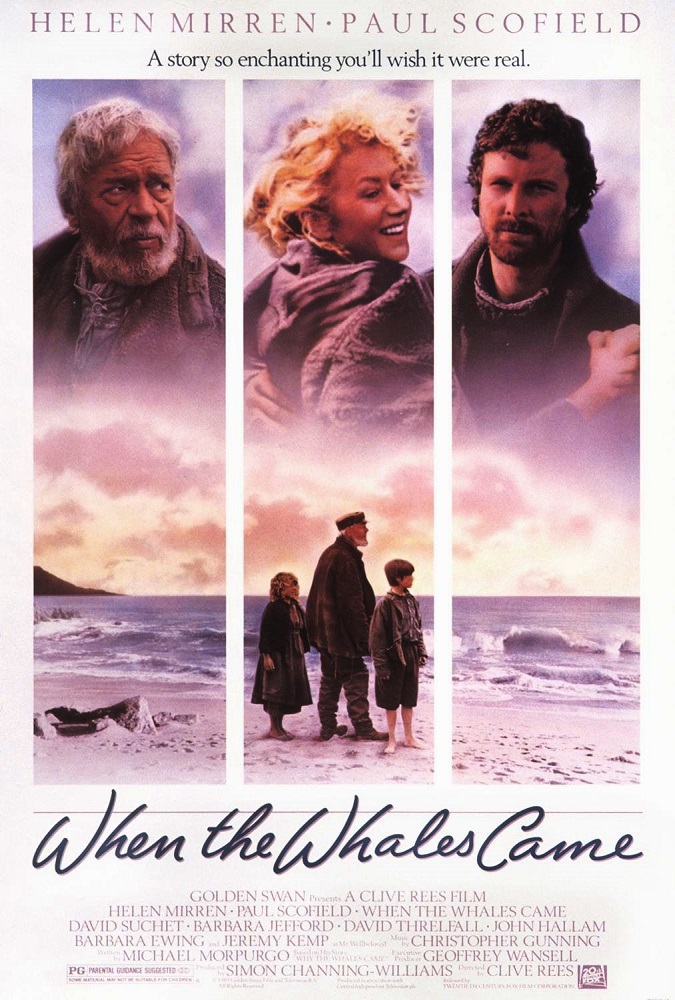Crew
Director – Clive Rees, Screenplay – Michael Morpurgo, Based on His Novel Why the Wales Came (1985), Producer – Simon Channing Williams, Photography – Robert Paynter, Music – Christopher Gunning, Production Design – Bruce Grimes. Production Company – Golden Swan/Central Independent Television.
Cast
Max Rennie (Daniel Pender), Helen Pearce (Gracie Jenkin), Paul Scofield (The Birdman, Mr Woodcock), Helen Mirren (Clemen Jenkin), David Threlfall (Jack Jenkin), John Hallam (Treme Pender), David Suchet (Will), Jeremy Kemp (Mr Wellbeloved)
Plot
1914, on the North Sea island of Bryher. Two children, Daniel Pender and Gracie Jenkin, befriend the kindly but stone-deaf Mr Woodcock, nicknamed The Birdman, who is ostracised by the other islanders. Mr Woodcock makes beautiful woodcarvings for them but this means that Gracie has to hide the one he gives her when she takes it home. World War I impacts on the island as many of the men are called up into service. Gracie’s father goes but this leaves Mrs Jenkin unable to support them because she cannot fish. Mr Woodcock anonymously leaves food packages on their doorstep. After a narwhal is washed up on the beach, the islanders desire to kill it for profit. Mr Woodcock knows that killing the whale will bring down a curse that will destroy the entire community as it did to the neighbouring island when he was a child. And so he and the children set out to fight the islanders’ selfishness and save the whale.
When the Whales Came is the sort of film that one would imagine might result if Greenpeace were ever allowed to take over running the BBC’s arthouse division. It is a very nice film, filled with often beautiful images. Director Clive Rees brings together a great cast, many of whom (Helen Mirren, David Suchet) were not as widely known at the time as they are today. All present deliver some fine provincial characterisations, especially good being Paul Scofield as the kindly but deaf Birdman.
The idea of the curse is an interesting one. However, the symbolism attached becomes heavy-handed and melodramatic with the whales coming to represent everything from a plea against war to the standard Save the Whales message. The moment the people save the whales, for instance, Gracie’s father (David Threlfall), who was supposedly killed in service, miraculously returns.
Ultimately, the film is hindered by a soft-focus pleasantry that leaves it too distantly removed to make the journey from being a nice to a great film. It is more a film that is constantly nudging at one to be filled with awe, respect for the environment or even the detail the production has lavished on its recreation of rural British island, than one that gets onto the business of creating good drama.
The problem is also that beneath its art movie respectability When the Whales Came is a simple-minded film. The book that it is based on, for instance, was written for children. Although the film has been sold to arthouse audiences, the story elements it swings – a belief in nature, against greed and war, the idea that if we are kind to animals rather than slaughter them they will bring the dead back to life – seem the naive and idealistic things that a young teenager might believe.
Trailer here


